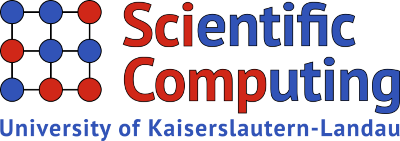Date and Place: Thursdays and hybrid (live in 32-349/online via Zoom). For detailed dates see below!
Content
In the Scientific Computing Seminar we host talks of guests and members of the SciComp team as well as students of mathematics, computer science and engineering. Everybody interested in the topics is welcome.
List of Talks
Event Information:
-
Thu17Dec2020
SC Seminar: Michael Herbst
11:30Online
Dr. Michael Herbst, École des Ponts ParisTech, France
Title: High-throughput density-functional theory calculations: An interdisciplinary challenge
Abstract:
Density-functional theory (DFT) is one of the most widespread methods for simulating the quantum-chemical behaviour of electrons in matter. Applications of DFT cover a wide range of fields including materials research, chemistry or pharmacy. In recent years so-called high-throughput screening calculations have emerged, where the aim is to automatically perform simulations on a large range of compounds and extract a few interesting ones for further investigation. Such use cases require a careful balance between accuracy and runtime inside the chosen algorithms and as such pose novel challenges with respect to physical models, reliability and performance of DFT codes. Tackling such problems is inherently a multidisciplinary task.
With this in mind we recently started the the density-functional toolkit (DFTK, https://dftk.org), a novel DFT package written in pure Julia. Our code provides a joint software platform for DFT, which is accessible to different scientific communities. In particular it is fast enough for practical calculations, but also flexible to support toy problems for mathematical development in the field. Despite being less than two years old our code already features a sizable feature set including mixed MPI-thread-based parallelism, support for arbitrary floating point types, as well as an integration with wide-spread codes in the field. Based on such aspects we have already managed to sucessfully push the state of the art, e.g. by designing novel black-box algorithms for high-throughput screening calculation or by investigating computable a posteriori error estimators for DFT.
How to join:
The talk is held online via Jitsi. You can join with the link https://jitsi.uni-kl.de/SciCompSeminar_06. Please follow the rules below:
- Use a chrome based browser (One member with a different browser can crash the whole meeting).
- Mute your microphone and disable your camera.
- If you have a question, raise your hand.
More information is available at https://www.rhrk.uni-kl.de/dienstleistungen/netz-telefonie/konferenzdienste/jitsi/.
